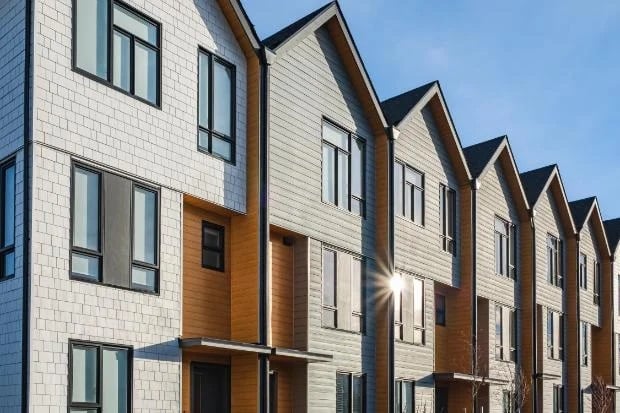The Good, the Bad, and the Ugly
Body corporate fees in New Zealand generally range from $2,500–$4,500 annually, but that’s just the beginning.
Recent horror stories include insurance costs jumping from $22k to $200k per year for a single Wellington building, and one litigious owner tying up an entire complex in court battles for years. New legislation came into effect in May 2024 that could either save your bacon or cost you thousands, depending on whether you’re prepared.
Nasty Surprises
You’ve purchased an Auckland apartment and you’re sitting back, watching rent drop into your account. But six months later, you’re hit with a $15,000 special levy for earthquake strengthening, your tenant’s complaining about a committee member who thinks they’re the apartment police, and the body corporate manager just **disappeared** leaving a record of questionable accounting practices.
Welcome to the wonderful world of body corporate ownership.
With government intensification policies pushing more Kiwis into apartments and townhouses, body corporate living is becoming the new normal. But unlike your standard house-and-land package, apartment ownership comes with a complex web of rules, fees, and fellow owners who might have very different ideas about how things should run.
Helpful New Rules
The Unit Titles Act got a major overhaul in 2022. Here’s what changed:
• Electronic everything: Body corporates can now run meetings remotely and use electronic voting. Who cares? It actually matters to investors who don’t want to trek across town for every committee meeting about whether the lobby plants need replacing.
• Stronger manager oversight: MBIE now has teeth to investigate dodgy body corporate managers. This comes after tribunal cases like the Heritage Hotel situation, where $43,246 went missing and owners had zero recourse.
• Better disclosure: When you’re buying, sellers must now provide much more information upfront about the body corporate’s financial health, planned works, and any ongoing disputes. No more nasty surprises after settlement.
• Pet rules: Body corporates can no longer blanket-ban pets (though they can still say no on reasonable grounds). For landlords, this means your tenants might soon be able to keep Fluffy, with up to two weeks’ extra bond.
Traps for the Unwary
• “Common Property” trap: Think you own your balcony? Think again. In many developments, balconies are common property, meaning you can’t just renovate or even hang laundry without committee approval. One Auckland investor learned this the hard way when hit with a $5,000 fine for installing unapproved outdoor furniture.
• Maintenance minefield: Your body corporate must maintain common areas and building elements, but defining exactly what falls under “building elements” versus your responsibility can get murky. Waterproofing around your bathroom? Probably a building element. The tiles inside? Probably yours. Get it wrong and you’re looking at expensive disputes.
• Darn democracy: In most decisions, you get one vote regardless of whether you own a studio or penthouse. For major decisions, you need 75% agreement. This means a handful of owner-occupiers who attend every meeting can outvote absentee investors on things like special levies.
• Ballooning insurance costs: Body corporates must insure the entire building on behalf of all owners. In Wellington, this has created a crisis where insurance costs have increased nearly tenfold in some buildings over 20 years. Unlike Auckland, where property values cushioned the blow, other cities are seeing body corporate fees eat significantly into rental yields.
Red Flags
• Litigation lovers: Beware buildings with that one owner who challenges every decision in court. These people exist and can tie up a body corporate in legal fees for years. Check the meeting minutes for signs of ongoing disputes.
• Aging building syndrome: Buildings from the 1980s–2000s are hitting major maintenance cycles. If the long-term maintenance fund looks thin and there’s talk of re-cladding, weathertightness issues, or seismic upgrades, factor in potential special levies of $20k–$50k per unit.
• Musical chairs: If a building has churned through multiple body corporate managers recently, that’s usually a sign of either difficult owners or underlying building issues. Either way, it’s not a problem you want to inherit.
• Committee chaos: Look for buildings where the same small group has run the committee for years with minimal owner engagement. These can become little fiefdoms where decisions get made based on personal relationships rather than building value.
Before You Buy That Apartment
• Do your due diligence: Request at least two years of meeting minutes, financial statements, and maintenance reports. Look for patterns in spending, disputes, and decision-making.
• Budget for the unexpected: Beyond annual levies, smart investors budget an extra $2k–$5k annually for special levies. Buildings are like cars — something always needs fixing.
• Engage early: Don’t be the absentee owner who only shows up when there’s a problem. Attend a few meetings, understand the building dynamics, and build relationships with other owners.
• Know your manager: Under the new rules, body corporate managers face stricter oversight. But prevention is better than cure. Research their track record, client retention, and financial processes before they’re hired.
With intensification and more Kiwis moving into apartments, body corporate governance is only going to get more important. The government has signaled that further reforms may be coming, particularly around manager licensing and dispute resolution.
Be warned: the days of buying an apartment and forgetting about it are over. Body corporate ownership requires active engagement, careful due diligence, and a solid understanding of the rules that govern your investment. Better to understand the rules and idiosyncrasies upfront than learn them the expensive way.
Dive deeper — the Unit Titles website (unittitles.govt.nz) has comprehensive guides, and the Body Corporate Chairs’ Group NZ offers resources for owners looking to get more involved in their building’s governance.
Check our website for a range of quality apartments for sale in Auckland. Call 0800 GOODWINS to make an appointment with one of our experts.

